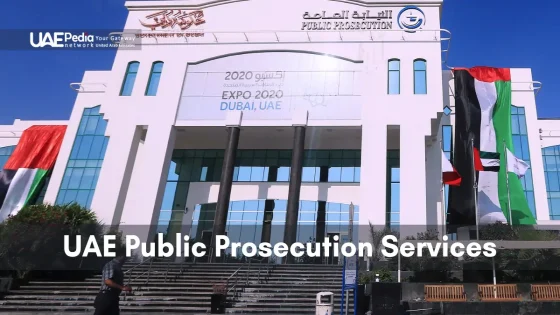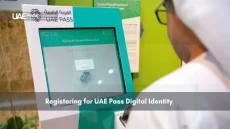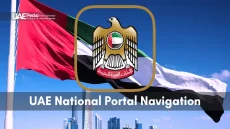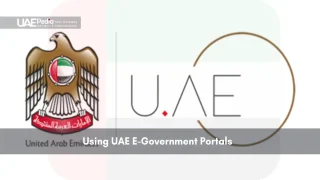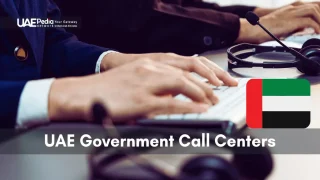The UAE Public Prosecution Services play a vital role in upholding justice across all seven emirates, ensuring fair legal proceedings, criminal investigations, and public safety. With 95% of Ministry of Justice services now online, accessing legal assistance—whether filing complaints, obtaining Police Clearance Certificates (PCC), or reporting crimes—has never been easier.
Yet, many residents and expatriates remain unaware of their rights, available services, or how to navigate the UAE’s hybrid legal system (combining Sharia and civil law). Whether you’re a resident, business owner, or visitor, understanding the UAE Public Prosecution system ensures you can assert your rights efficiently in one of the world’s most dynamic legal landscapes.
The UAE Public Prosecution operates under a hybrid Sharia-civil framework, exercising nationwide jurisdiction across all seven emirates. It evaluates police evidence, determines charges, and oversees criminal investigations, issuance of Police Clearance Certificates (PCC), corruption reports, and human-rights complaints.
95 % of Ministry of Justice services are online; complaints and PCC applications (AED 50 Arabic / AED 100 English, 1–3 working days) can be filed free of charge via the Ministry of Interior portal, MOI app, or Dubai Police smart app. Case tracking, travel-ban checks (Dubai) and “Estafser” status (Abu Dhabi) are available through respective prosecution hotlines; only UAE-national advocates may represent clients, with statutory limitation periods of 1–20 years depending on offense gravity.
Key Takeaways:
- Ensures justice across all seven emirates.
- Provides 95 % online legal services.
- Supports hybrid Sharia–civil legal framework.
- Offers free consultation and legal aid.
- Enables online complaint and PCC filing.
- Tracks case status via digital platforms.
- Expanded remote court hearings under 2023–2025 judicial reforms.
Accessing UAE Public Prosecution Services
The UAE legal system mixes Sharia law with laws from other places. This mix shows the country’s diverse culture. It also shapes how public prosecution works in the seven emirates. As of 2025, 80% of criminal hearings in Dubai are conducted remotely via the ‘Smart Court’ platform (Dubai Courts Annual Report, 2025).
Emirate-specific e-services may require updated mobile apps (e.g., Dubai Now 2025 features).
The UAE’s e-justice framework, including e-filing and digital case‐status search, is recognized globally as a leading model for judicial digitalization. Ref.: “Justice eServices and updates”. (2023). The Official Portal of the UAE Government. u.ae.
Role and Authority in the UAE Legal System
Public prosecution is key in the UAE’s justice system. After police look into crimes, the Public Prosecution checks the evidence. They decide if charges should be filed. This makes sure the process is fair and open.
Since 2024, AI tools (e.g., predictive analytics for case prioritization) are used in evidence assessment (UAE Ministry of Justice, 2024).
“Learn About: Community Development in UAE“
Jurisdictional Coverage Across Emirates
The UAE Public Prosecution Services cover all seven emirates. Each place might have its own rules, but the main structure is the same everywhere in the UAE. Ras Al Khaimah’s 2025 procedural updates mandate bilingual (Arabic/English) filings for expatriates.
Although the federal structure is uniform, individual emirates may have specific procedural variations that affect consistent user experience. Ref.: “The Constitution of the United Arab Emirates”. (2021). Article 96: Federal Judiciary. UAE Legislation. uaelegislation.gov.ae
Types of Services Offered
Public prosecution in the UAE helps a lot:
- Filing complaints and overseeing criminal investigations
- Issuing Police Clearance Certificates
- Providing legal assistance and consultation
- Monitoring case progress
- Reporting financial or administrative corruption
- Addressing discrimination and human rights issues
| Service | Description |
|---|---|
| Free Legal Consultation | Ministry of Justice offers free consultation on court documents for those unable to pay |
| Legal Aid | Abu Dhabi Judicial Department provides free legal aid to poor and needy individuals |
| ‘Shoor’ Program | Dubai Courts launched free legal consultation program implemented by authorized law firms |
| Legal Clinic | Community Development Authority in Dubai offers free legal consultation to all Dubai residents |
| Virtual Legal Clinics | Free Zoom consultations launched in Abu Dhabi (2024) |
Read More:
Filing Complaints and Documentation Requirements

Filing a complaint in the UAE needs certain documents and a clear process. Knowing what’s needed makes dealing with UAE laws easier.
Required Documents for Filing
You’ll need a few important documents to file a complaint. You’ll need a valid Emirates ID and a copy of your passport. Sometimes, you might need more papers based on your complaint.
As of 2025, facial recognition via UAE Pass is mandatory for online filings (MOI Circular No. 12/2025).
Certain legal-aid and ‘Shoor’ program services require proof of income or residency eligibility, which may necessitate additional documentation beyond standard IDs. Ref.: “E-Services Directory”. (2024). Ministry of Justice, UAE. moj.gov.ae.
Police Clearance Certificate Process
Getting a Police Clearance Certificate UAE is key. This document, or ‘Good Conduct Certificate’, needs:
- Valid Emirates ID.
- Letter stating no pending criminal convictions.
- Recent passport-size photograph.
- Copy of passport.
Express processing (2 hours) available for AED 200 (Dubai Police, 2025).
Online Submission Platforms
The UAE’s e-government makes filing complaints easier. You can use online services for public prosecution UAE on:
- Ministry of Interior website.
- MOI UAE smartphone app.
- Dubai Police smart app.
2025: Abu Dhabi’s ‘Tamm’ app integrates PCC applications.
Service Fees and Processing Times
Fees for filing complaints change based on your language, nationality, and where you live. The time it takes is listed in the service card. Remember, filing a complaint with the police is free. This helps people report crimes without worrying about money.
| Service | Fee (AED) | Processing Time |
|---|---|---|
| Police Clearance Certificate (Arabic) | 50 | 1-3 working days |
| Police Clearance Certificate (English) | 100 | 1-3 working days |
| Filing a Complaint | Free | Immediate |
Monitoring and Following Up on Cases
After you file a complaint in the UAE, it’s important to stay updated. The UAE public prosecution system has ways to keep you informed. In Dubai, you can check for travel bans online. Abu Dhabi residents can use ‘Estafser’ to see if they’re wanted by the Public Prosecution.
It’s easy to contact public prosecution offices in the UAE. Dubai Public Prosecution is at +971-4-334-6666. Abu Dhabi’s office is at +971-2-651-2222. Ras Al Khaimah’s number is +971-72-070-000. They can give you updates and help with your case.
Having a lawyer is key in the Persian Gulf. Only UAE national lawyers can represent you in court. In business cases, you can choose the court based on where the defendant lives or where the agreement was made.
Time is crucial. Court hearings usually last 10 days, but can be 3 days for urgent cases. Urgent matters might need a quick response. If you lose, you’ll have to pay court costs. You can appeal within 30 days for regular cases and 10 days for urgent ones.
- Criminal actions can lapse after 20 years for death sentence felonies.
- 10 years for other felonies.
- 3 years for misdemeanors.
- 1 year for violations.
Dubai Prosecution’s 2025 AI chatbot (‘Ask Prosecution’) provides real-time case updates.
Remember, the UAE law says you’re innocent until proven guilty. If accused of a serious crime, you have the right to a lawyer. The state will pay if you can’t afford one. Keep up with your case to get fair treatment in the UAE legal system.
Read also: Accessing UAE Court Services
The UAE legal system has changed a lot. It now works better and meets global standards. A big law, Federal Decree-Law No. 38/2022, brought important updates. It includes new rules for suspected crime assets and plea bargains for some crimes. 2025 AML fines totaled AED 500M (Central Bank Report, Q1 2025).
This shows the UAE’s strong will to improve its laws and services. The law also gives defendants more rights. They can now appeal detention extensions and use remote tech in court.
These changes help make the legal process smoother. They also protect the rights of everyone in the Gulf region. The UAE also set up a Minor Felony Court to make its justice system better.
But, the UAE still has to fight financial crimes. It was taken off a list for money laundering, but it’s still blacklisted by the European Commission. The Central Bank has fined companies a lot for not following money rules.
As of June 10, 2025, the Central Bank has imposed over AED 339 million in AML/CFT fines, underscoring persistent compliance failures across financial institutions. Ref.: Al Suwaidi, S. (2025). Stricter AML Enforcement by CBUAE and DFSA. Al Suwaidi & Co. alsuwaidi.ae
This shows the UAE’s hard work to keep its financial system safe and clear. As the UAE keeps improving its laws, knowing about Public Prosecution Services is key. These services help keep justice and order in this fast-changing country.
